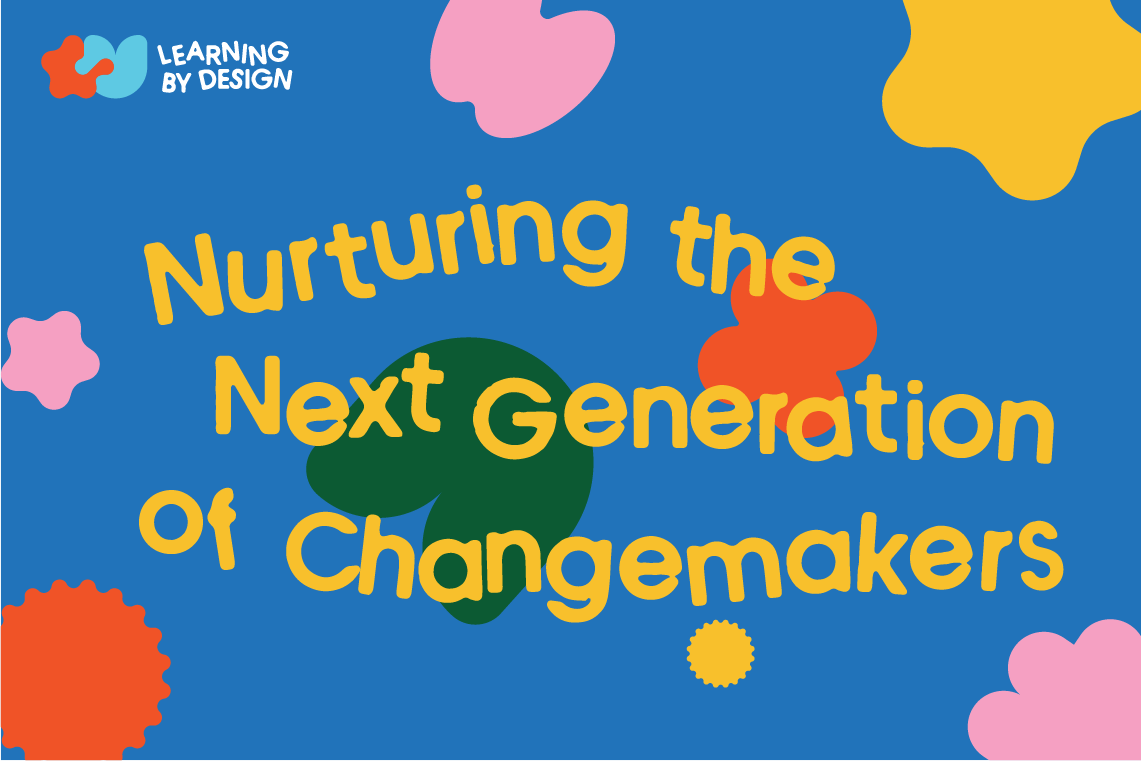Designing an Easier Tax Experience for SMEs
With technology, paying taxes is a breeze for most Singaporeans but it remains a daunting task for SMEs, especially when they are caught up with running their businesses. To make the SMEs’ tax-paying experience less painful, the Inland Revenue Authority of Singapore (IRAS) used the design thinking approach to empathise and understand their stakeholders, before co-creating solutions with them. The result was an award-winning digital onboarding tool for new SMEs.
Challenge
Rapid technological advancements and rising public expectations in recent years have created new challenges for the Inland Revenue Authority of Singapore (IRAS). New business models leveraging on contemporary technologies have emerged, with implications on tax treatments and collection. Taxpayers have also become more digital-savvy, and expect similar, if not higher, levels of service with contemporary digital services. To address these challenges, IRAS embarked on a transformation journey (called ‘LEA:D – LEveraging Analytics, Design and Digitalisation’) in 2016, where it sought to redefine the experiences of the taxpayers as well as the experiences of staff working in IRAS.

Facing a flood of information could result in feeling “lost at sea” and they may end up not taking any action.
Design was identified as one of the strategic pillars of this transformation journey. Adopting an outside-in and human-centric approach, IRAS conducted service design projects to better understand the needs and desires of taxpayers in three key segments – individuals, small and medium enterprises (SMEs) and large businesses. The service design project for SMEs was one of the projects commissioned to dive deeper into the experiences that SMEs had in their interactions with IRAS.
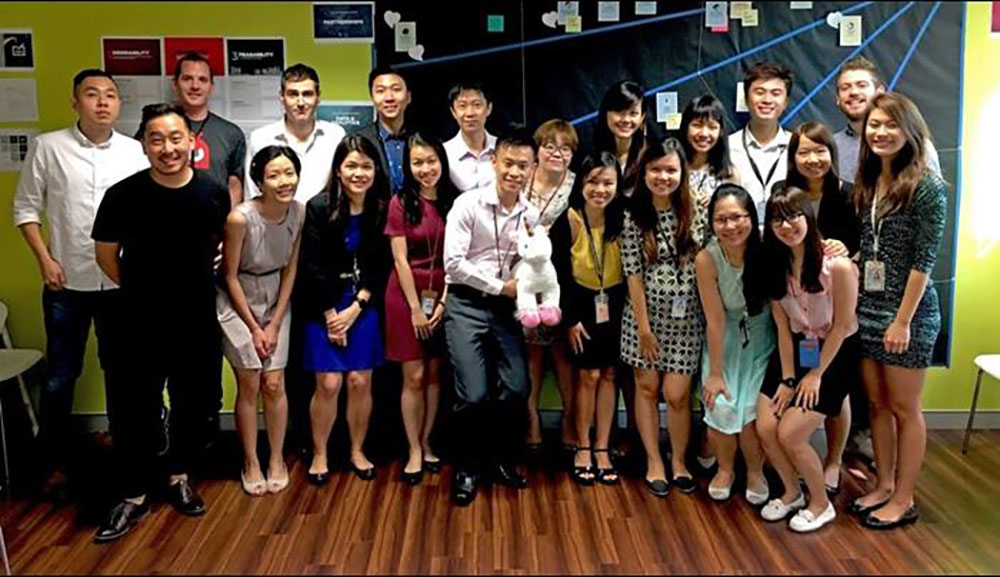
The design challenge for this project was: “How might we better anticipate taxpayers’ (SMEs’) needs and provide more personalised services based on taxpayers’ profiles and life stages?”
SMEs wanted to fulfil their tax obligations but they might not know what they needed to do. Being smaller in their set-up and having limited resources, SMEs tended to be so caught up in running their business that they faced challenges in understanding their tax obligations (such as their Goods and Services Tax registration responsibilities and income tax filing requirements) and in preparing their tax submissions.
Using a design approach that comprised the Discover, Describe, Design, Develop and Release stages (refer to Figure 1), IRAS was better able to understand the needs of SMEs, identify issues, and design solutions. The aim was to make tax filing simple and seamless, and in doing so, deliver a positive tax experience for the SMEs.
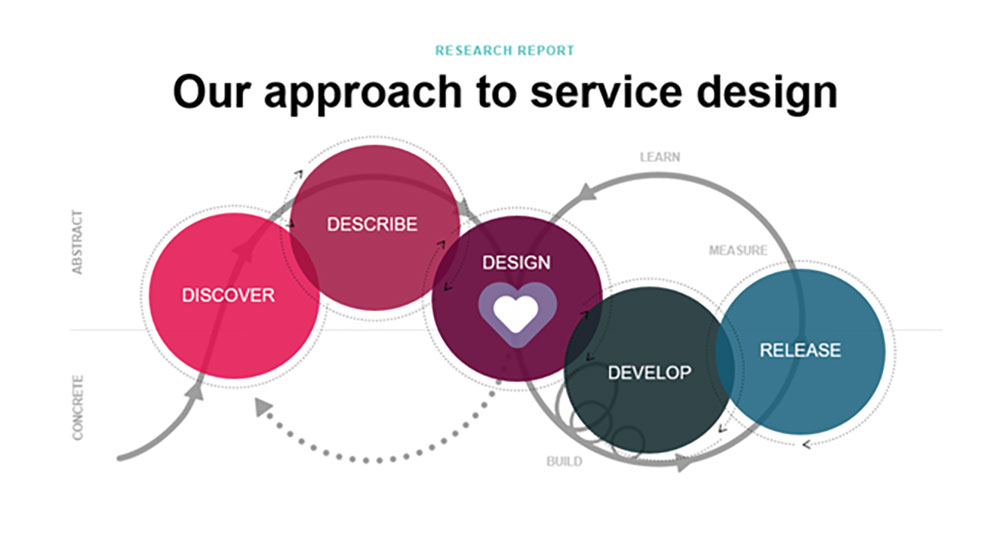
Solution
IRAS put together a cross-functional project team comprising 20 IRAS officers who possessed the relevant domain knowledge about SMEs and who also displayed interest and aptitude for design. Over the course of five months (from October 2016 to February 2017), the project team worked together with external consultants to complete the design project, and at the same time, grew their design expertise through learning and hands-on participation.
The LEA:D experience sponsors for SMEs, who were also members of the IRAS senior management team, championed this design project and provided guidance and direction to the project team. As LEA:D experience sponsors for SMEs, they ensured that all planned strategies and initiatives would lead to seamless end-to-end experiences for SMEs.
Research phase
As part of the ethnographic research, the team conducted a total of 45 in-depth interviews with:
(1) SMEs from various industries (such as transportation, food, real estate, finance and manufacturing) to better understand their interactions with IRAS; and
(2) Software providers, tax agents, employees of the Accounting and Corporate Regulatory Authority of Singapore (ACRA) and Enterprise Singapore, staff from SME Centre and members of the tax community (SIATP) to understand the ecosystem of SMEs;
In addition to the in-depth interviews, some 20 IRAS staff went out in pairs to conduct “guerrilla” interviews with over 80 business owners and their employees in the hawker and retail lines. They also shadowed IRAS frontline officers and tax intermediaries to find out more about their work.
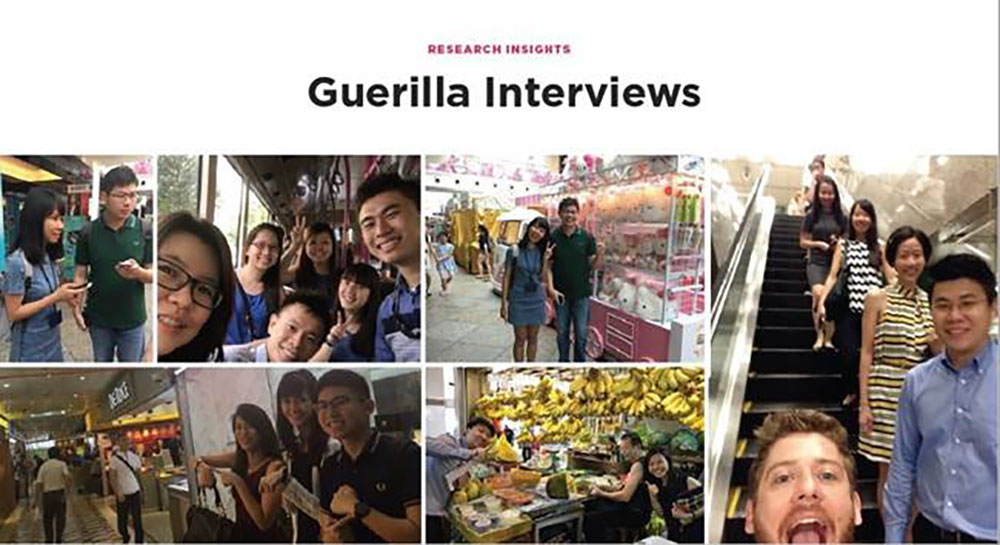
Insights gathered:
From the research done, the team identified 16 themes after synthesizing their findings and created archetypes of the SMEs to better understand whom they were designing for. Some of the key insights that the team learnt were that SMEs, who wanted to comply with their tax obligations, needed assurance from IRAS that the actions they had taken were correct.
Facing a flood of information could result in feeling “lost at sea” and they may end up not taking any action. This understanding, coupled with the current state journey map for SMEs which the team had fleshed out, led IRAS to realise that SMEs needed clear, personalised information, delivered at the point of incorporation of their business, to help them prepare for and fulfil their tax obligations.
Co-creating solutions:
With a deeper understanding of the SMEs’ pain points, the team conducted two one-day workshops to co-create ideas that could resolve the pain points and improve the experience of the SMEs.
Over 70 participants of various profiles (e.g., SME owners/employees, representatives from other government agencies and IRAS staff) participated in the ideation process. Based on the insights from the ethnographic research and workshops, the team developed a future state journey map for SMEs to guide IRAS’s efforts to create a future experience that meets the needs of the SMEs.
Having observed that the first tax filing was a key pain point for newly-incorporated SMEs, the team decided to focus on developing a digital onboarding tool for newly-incorporated companies to help them set up correctly from the start and hence, build confidence in them.
The aim of the digital onboarding tool was to provide relevant, bite-sized tax-related information to newly-incorporated companies at the point of incorporation of their business, so that they can have ample time to prepare and fulfil their tax requirements.
Over two weeks, two design sprints were conducted where the project team, subject matter experts and SMEs came together to co-design the onboarding tool.
Through these sprints, the project team tested their assumptions and validated useful features of the tool with the SMEs. To ensure that the onboarding tool would work as intended and was easy to use, a working prototype was developed with the help of IRAS’s in-house User eXperience Design (UXD) team and put through a series of user experience testing with selected stakeholders.
IRAS deployed the digital onboarding tool, called the ‘New Company Start-Up Kit’, in January 2018 to a pilot group of about 3,500 newly-incorporated companies.
The ‘New Company Start-Up Kit’ is an online tool that provides newly-incorporated companies with key tax-related information that they need to know at the point of starting up a business. It includes a personalised timeline to help businesses keep track of when they need to file their tax returns and when their taxes are due. The Start-Up Kit also includes email reminders that are sent to companies a month before the filing due dates. The timelines are personalised to each company, based on their date of incorporation.
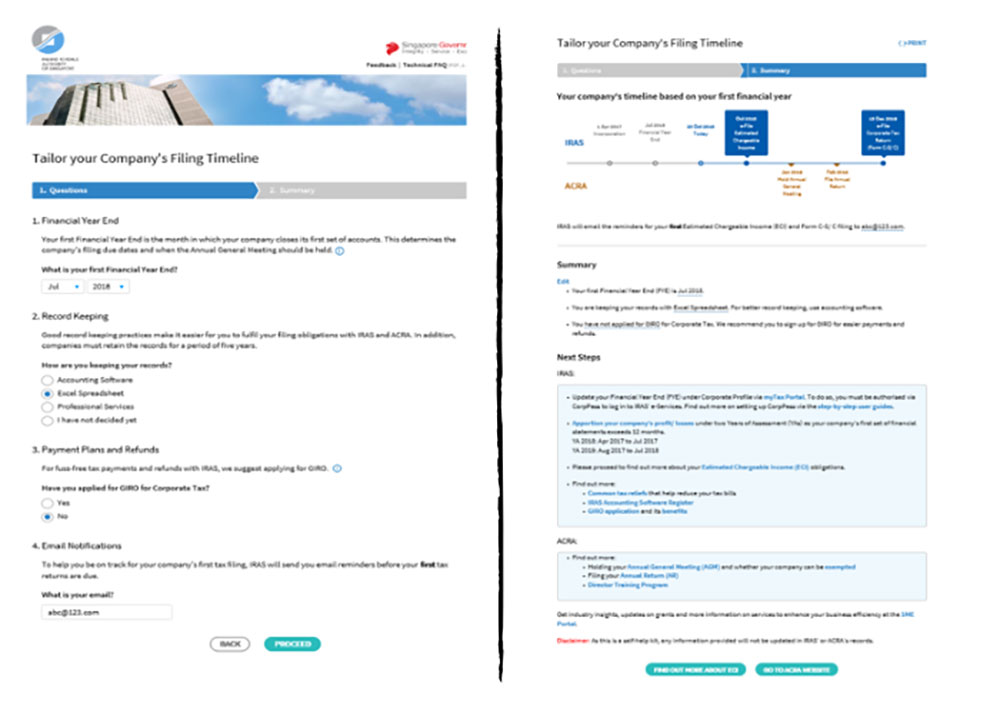
Impact analysis
With more clarity and greater certainty of their tax obligations and filing timelines when setting up their business, new companies can now be more assured and empowered in planning ahead so that they can fulfil their tax obligations in a timely manner.
New companies, which gave feedback on the kit, said:
- “I think this is much better than other communication attempts in the past. One reason: it seems the editors are making an effort to clearly label the acronyms that are used extensively in government communications. This has always been a problem in the past.”
- “Very convenient for new player.”
- “Make(s) it easier to understand for first-timers.”
The Start-Up Kit won the Public Sector Pro-Enterprise Initiative Award 2018 (Bronze), which attested to the positive impact it made to companies.
Given the positive feedback from the pilot group, IRAS commenced work on the second phase of the Start-Up Kit. Bearing in mind that the companies’ interaction with government agencies were not limited to IRAS, IRAS adopted a cross-agency collaborative approach for the second phase of the Start-Up Kit to bring on board other government agencies that companies will need to engage during the setting up or running of their business.
The next phase aims to include information on subsequent interactions and tax filings with IRAS, as well as filing requirements by ACRA. There will also be a link to Enterprise Singapore’s website so that the new companies can seek industry insights, get updates on available grants, and obtain information on services to enhance business efficiency.



